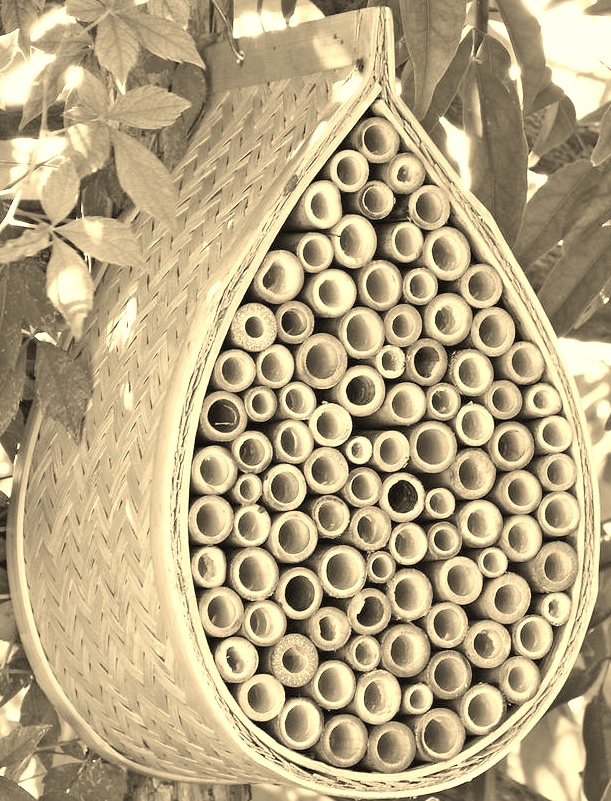 Click here for the official guidelines from the Boy Scouts of America for the Insect Study Merit Badge.
Click here for the official guidelines from the Boy Scouts of America for the Insect Study Merit Badge.
Insects are an integral part of any ecosystem including plants. The relationships among plants and insects are deep and long-standing, some over a span of millions of years. If you are building a self-watering container garden and following our organic recommendations, then you will likely make use of beneficial insects, such as ladybugs and mason bees.
This badge requires you to observe 20 different live species of insects in their habitats and make a scrapbook about them. Your self-watering container garden becomes a habitat once you build it and you can observe and photograph insects in your garden as you maintain it over time in addition to any insects may you observe elsewhere.
This badge requires you to identify three species of insect helpful to humans and five that are harmful. Two beneficial insects have already been identified, above, though it is up to you to research what makes them beneficial. The badge also requires you to raise an insect through complete metamorphosis from larval to adult stage, gives the suggestion of raising a moth from a caterpillar, but then cautions against possibly harming endangered species.
We would like to suggest that, rather than take larval insects from the wild, you purchase mason bees during their dormant stage (November to March, generally). If you cannot find them through local sources, they can be purchased online from organic gardening suppliers. You must also have an appropriate structure for them to nest, which are also available through organic gardening suppliers.
Mason bees are sold while in their last stage of metamorphosis in little clear cocoons. When they hatch from these cocoons, they are adult bees. This will not satisfy your badge requirement, by itself, however. The badge requires you to raise insects from their larval stage.
If you have mason bees nesting in your mason bee house, by June there should be mason bee eggs stored in the tubes of the bee house. The eggs will become larvae and will eventually progress through the cycle of metamorphosis until, the following year, you will have raised an entire family of mason bees from the larval stage to adulthood.

This badge calls for you to observe an ant colony or beehive. A mason bee house may not satisfy this requirement. You will need to decide this with your Badge Counselor.
This badge requires you to understand how insects fit in the food chians of other insects, fish, birds, and mammals. Considering that some insects will eat and destroy your garden if permitted, and that they can be eaten by other insects, this topic of exploration directly relates to self-watering container gardening.
Return to Boy Scouts Page
